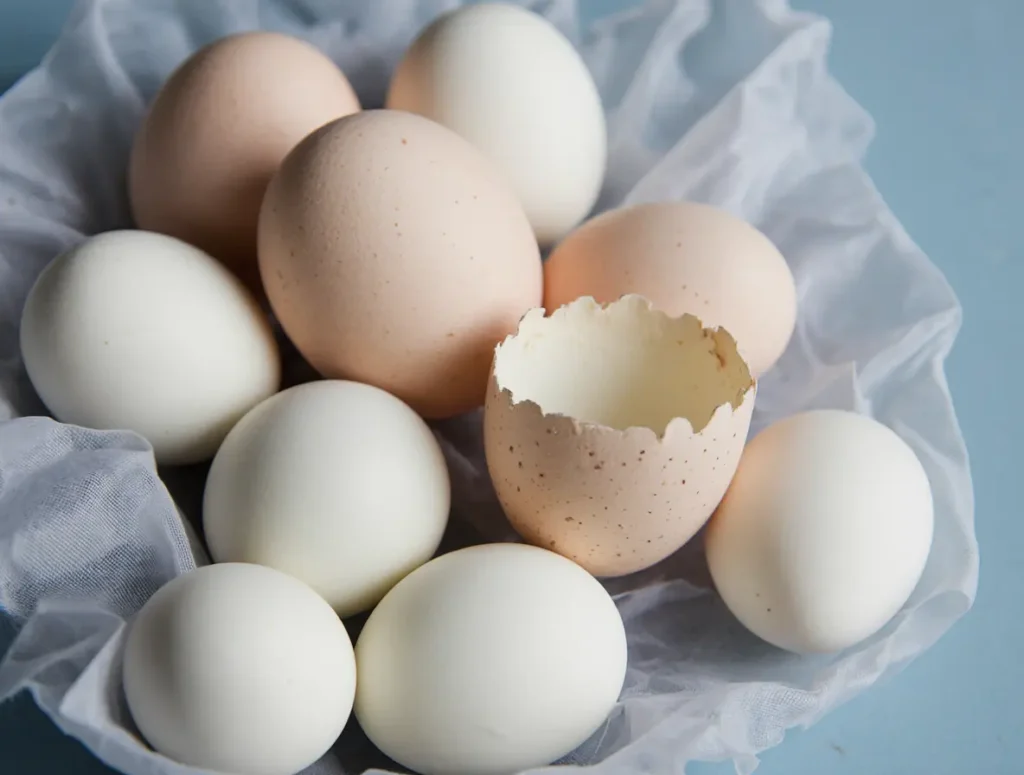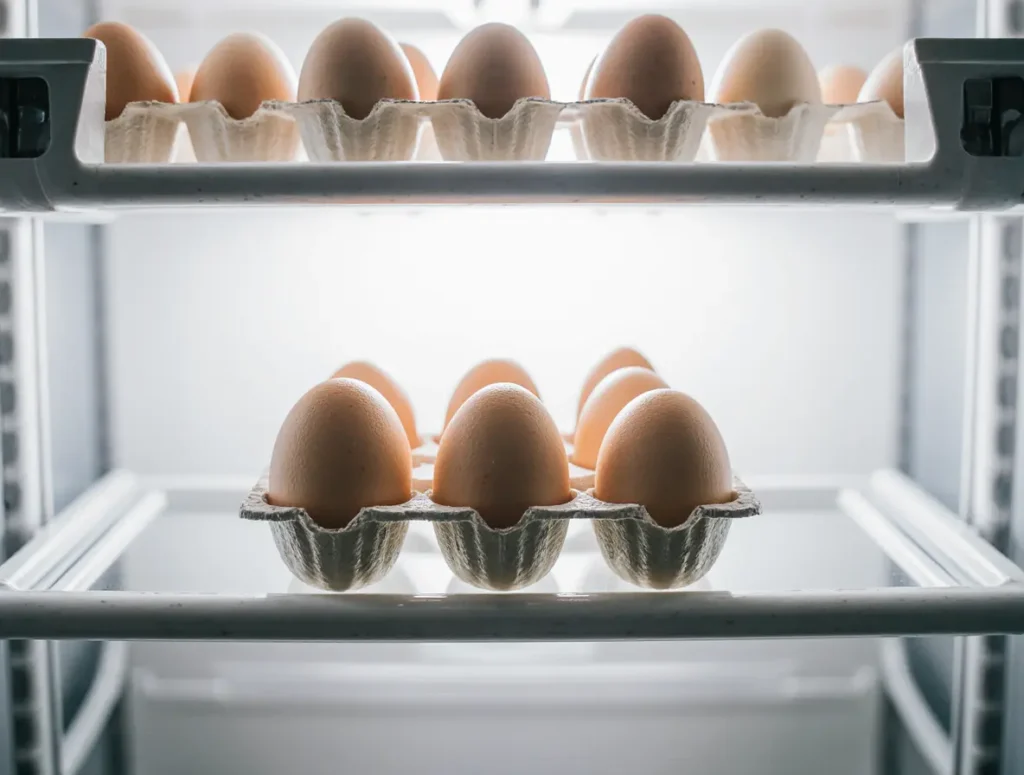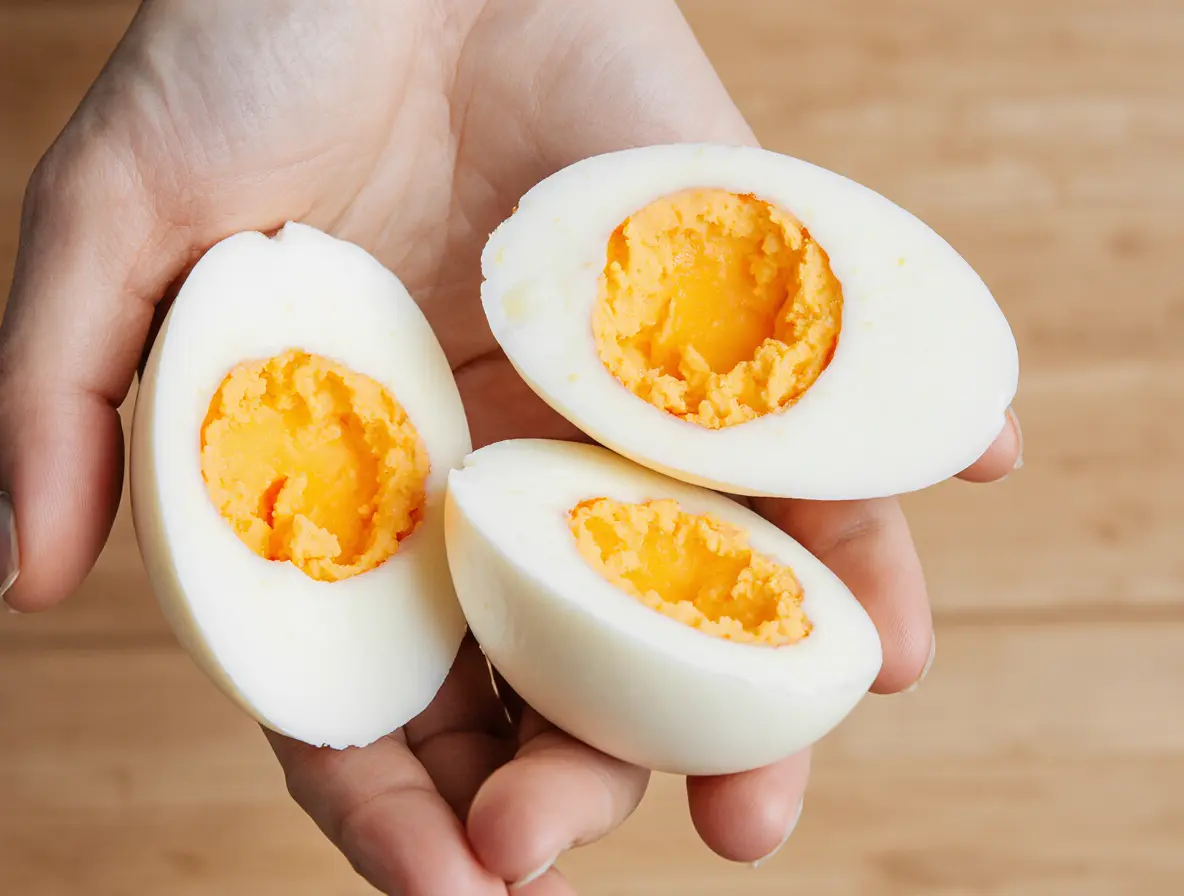Eggs are one of the most versatile, affordable, and protein-rich ingredients in any kitchen. From breakfast scrambles to baked goods, they show up in countless meals. But here’s a question we all ask sooner or later: how long do eggs last in the fridge?
It’s not always clear, especially when dates on cartons are confusing or you’ve forgotten when you bought them. In this article, we’re cracking open everything you need to know—how long eggs actually stay fresh, the best storage practices, signs of spoilage, and smart tips to make your eggs last longer. Let’s dive in!
Table of Contents
Why Egg Freshness Matters
At first glance, eggs might seem like little miracles of nature that last forever. But the truth is, they do go bad. When they do, they can bring along harmful bacteria like Salmonella, which can cause foodborne illness.
Understanding egg freshness isn’t just about taste—it’s about your health, your wallet, and your kitchen confidence. Nobody wants to crack open a spoiled egg while preparing a favorite dish. That experience is as unpleasant as stepping into a puddle while wearing socks. Once you know how long eggs last and how to store them properly, you can cook with peace of mind.
How Long Do Raw Eggs Last in the Fridge?
Let’s start with the basics. According to the USDA, raw eggs in their shell can last in the refrigerator for 3 to 5 weeks from the date you bring them home.
But here’s the twist:
The date on the carton might be earlier than the eggs’ actual expiration. Why? Because those dates often refer to peak freshness, not spoilage. In reality, eggs often stay safe for a few weeks past the listed date.
For example, if you bought a dozen eggs on June 1st and stored them correctly in the fridge, they could still be good well into the third or fourth week of June. The best way to know for sure is by combining good storage habits with simple freshness checks (more on that later).
How Long Do Eggs Last After the Expiration Date?
It’s normal to be cautious about dates on food, but with eggs, the date isn’t always the final word.

What the expiration date really means:
- A Sell-By Date tells the store how long to display the product.
- A Best-By or Expiration Date suggests when the eggs are at their best quality.
Even if the date has passed, eggs could still be perfectly fine. In many households, eggs are safe to eat 3 to 5 weeks beyond the sell-by date, as long as they were stored properly in a consistently cold fridge.
Think of the date as a “suggestion,” not a hard stop. But always use your senses (smell, look, feel) before trusting an older egg.
How Long Do Hard-Boiled Eggs Last in the Fridge?
Once you boil eggs, their shelf life shortens significantly.
Here’s the rule of thumb:
- Hard-boiled eggs: Last about 1 week in the fridge.
This is because the protective outer layer (called the “bloom”) is washed away during boiling, making them more prone to spoilage. Always store them peeled or unpeeled in an airtight container to keep them fresh.
A good practice? Write the date you boiled them directly on the shell with a marker. It’s a tiny habit that saves big headaches later.
How Long Do Cracked or Raw Eggs Out of the Shell Last?
Sometimes you might crack a few extra eggs for a recipe and end up with leftovers. How long can you keep those?
Storage Guidelines:
- Raw eggs (beaten or separated): Use within 2 days.
- Store them in a sealed container in the fridge.
Whether it’s a bowl of egg whites for meringue or leftover yolks for custard, don’t wait too long. Cracked eggs are more exposed to bacteria and spoil faster.
How to Store Eggs Properly in the Fridge
Storing eggs the right way can make a noticeable difference in how long they last.
Top Storage Tips:
- Keep eggs in their original carton. It protects them and helps track dates.
- Store them in the coldest part of the fridge. That’s usually the back, not the door.
- Avoid frequent temperature changes. Every open and close of the fridge door impacts temperature, and eggs don’t like that.
- Don’t wash eggs until you use them. Washing removes the bloom, a natural protective coating.
A helpful way to think about eggs: they’re like introverts at a party—they do best in quiet, stable environments away from sudden changes!
How to Tell If an Egg Has Gone Bad
Still unsure about that egg in the back of your fridge? Here’s how to tell if it’s still good.

1. Float Test:
Fill a bowl with water and gently place the egg inside.
- Sinks and lies flat: Very fresh.
- Sinks but stands upright: A bit older, still safe.
- Floats: Likely bad. Toss it.
2. Smell Test:
A rotten egg has a very distinct sulfur smell. If it stinks—trash it.
3. Visual Check:
- Fresh egg: Clear or slightly cloudy white, firm yolk.
- Spoiled egg: Watery whites, dull yolk, discoloration.
Using these methods together helps confirm freshness.
Freezing Eggs: Can You Extend Their Life?
Absolutely. Freezing eggs is a fantastic way to preserve them.
How to Freeze Eggs:
- Crack them into a bowl.
- Beat lightly.
- Pour into ice cube trays or freezer-safe containers.
- Label and date.
Frozen eggs last up to 1 year, but for best quality, use within 4 months.
Note: Don’t freeze eggs in the shell—they could crack and make a mess.
How to Make Eggs Last Longer
Want to get the most out of every carton? Here are some longevity tips:
Egg Freshness Boosters:
- Buy from a reliable source. Farm-fresh eggs often last longer.
- Refrigerate immediately. Don’t leave eggs sitting out.
- Rotate eggs. Place newer cartons behind older ones.
- Date your eggs. Write the purchase or boil date.
A personal trick? Keep a sticky note on the fridge door that says: “Check the float!” It’s a friendly reminder to do the water test when in doubt.
Conclusion
Eggs are nutritious, budget-friendly, and incredibly useful in the kitchen. But like all good things, they don’t last forever. Understanding how long eggs last in the fridge and how to store them properly can help you avoid waste, prevent illness, and get the most out of every carton.
From raw to hard-boiled, cracked to frozen, eggs can stick around for weeks—if you treat them right. So next time you’re about to toss an egg because it’s past its date, pause and test. You might just save yourself a trip to the store.
FAQs
1. Can you eat eggs that are 2 months old?
It depends on how they’ve been stored. If kept cold and they pass the float and sniff test, they might still be safe. But always check before using.
2. How long do eggs last in the fridge after boiling?
Hard-boiled eggs typically last up to 7 days when stored properly in an airtight container in the fridge.
3. Should eggs be kept in the fridge door or the main shelf?
The main shelf is better because it stays colder and more consistent than the door, which opens often.
4. Do farm-fresh eggs last longer than store-bought?
Yes, because they often retain the bloom, a natural protective coating that extends shelf life. However, once washed, their longevity is similar.
5. Can I re-refrigerate eggs after leaving them out?
If eggs were left out for more than 2 hours, especially in warm conditions, it’s safest not to eat them.

